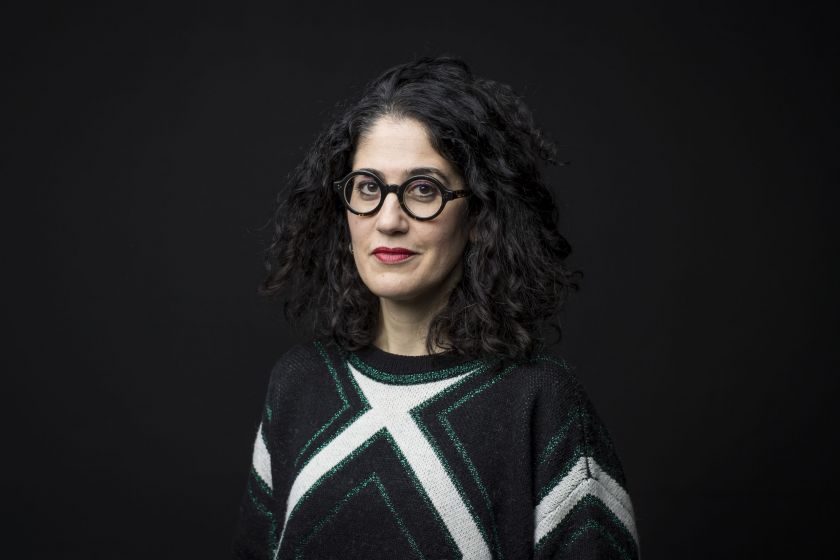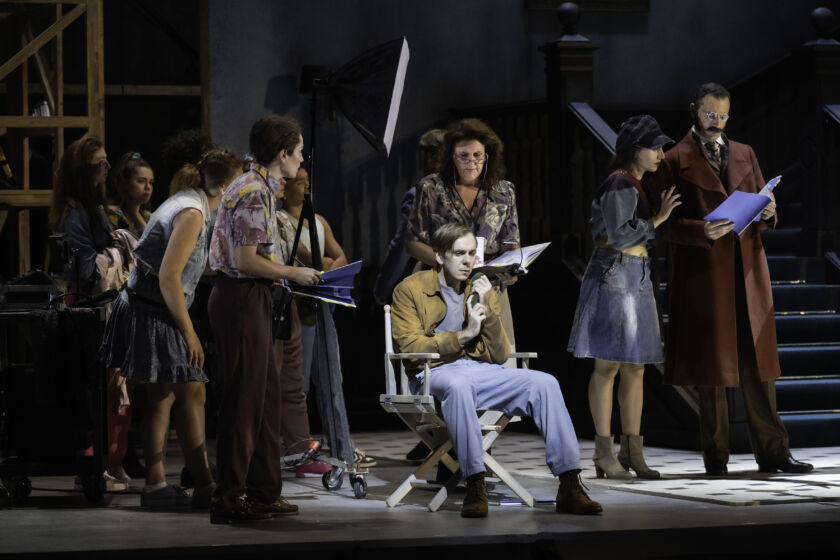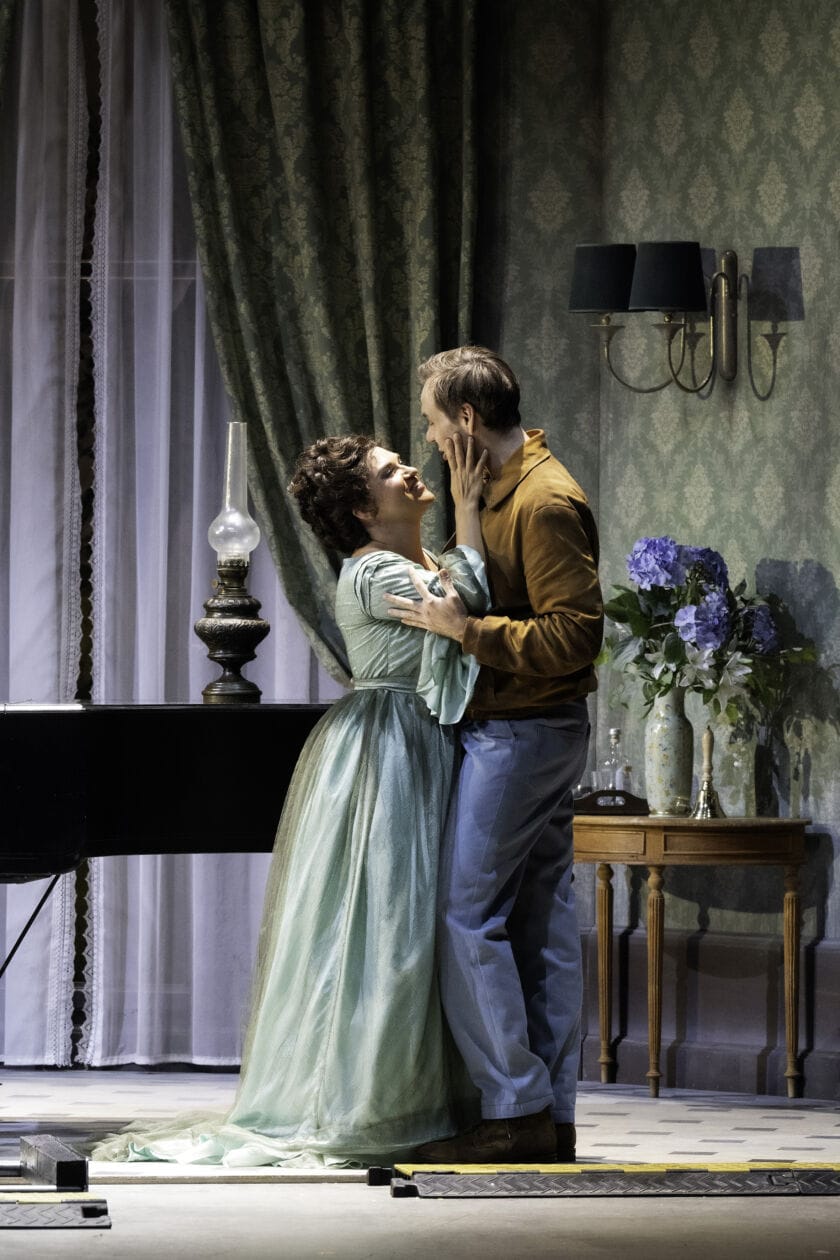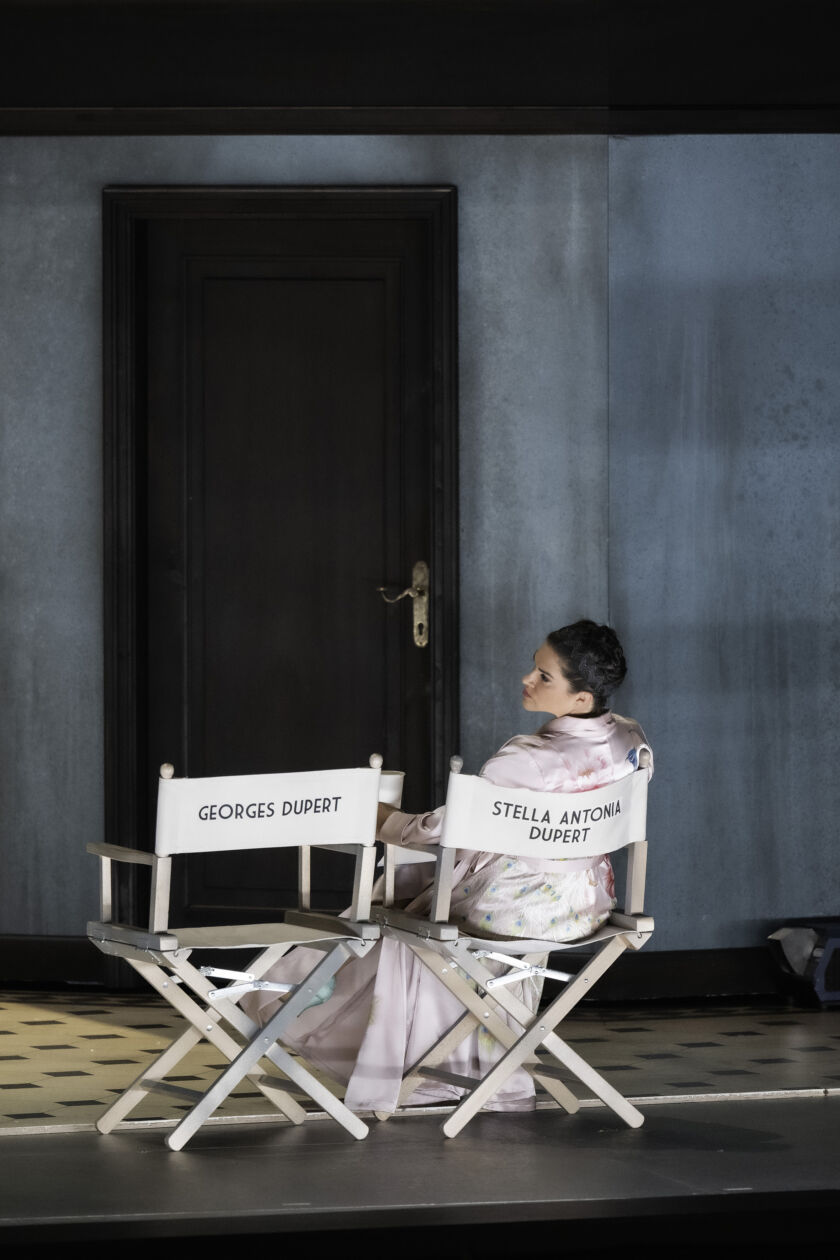“First of all, you have to invent the story you want to tell”

Mariame Clément makes her Salzburg Festival debut with Les Contes d’Hoffmann. A conversation with the director.
Jacques Offenbach’s opéra fantastique does not make things easy for directors: of that, Mariame Clément is convinced. As she recounts in this interview, she threw herself into working on this piece, which combines several tales by E. T. A. Hoffmann, with all the more intensity. Marc Minkowski conducts the Vienna Philharmonic; Julia Hansen created sets and costumes. Benjamin Bernheim stars in the role of Hoffmann. Stella, Olympia, Antonia and Giulietta will be portrayed by Kathryn Lewek. Kate Lindsey sings the Muse and Nicklausse. In our interview, Mariame Clément, who has worked at the Opéra national de Paris, the Teatro Real in Madrid, the Grand Théâtre de Genève, in Glyndebourne and many other major opera houses, discusses the challenges of the work.

Les Contes d’Hoffmann involves several stories instead of one. How do you deal with this?
I find this opera structurally very difficult, but of course that also makes it intriguing to stage. The challenge is that the libretto is a patchwork containing many different sources. I understand an opera that features one story, but four? Furthermore, the librettists have not only combined different tales by E. T. A. Hoffmann in one libretto, but have also put E. T. A. Hoffmann himself on stage: we meet him in the framework story as a narrator, but then also as an active character in his own works! It’s a bit as if someone said: let’s make an opera in which a prince of Denmark stars in the first act, a king of Scotland in the second, a knight who drinks too much in the third – and then let’s call the protagonist William Shakespeare. That makes the piece a dramaturgical challenge and the main protagonist a strange one, not easy to understand. Even if I have enjoyed the opera as a viewer, I always had trouble believing in this person.
How do you solve this problem?
By trying to weave this meta-level into the story. I am not just going to present a character named Hoffmann who is a writer. Instead, I also want to show what kind of a person he is. I want to explore whether he undergoes a development during the course of the piece. It’s not just about Hoffmann’s oeuvre, but mainly about the fact that the artist and his creations cannot be separated in our minds. I have tried an approach in which some of the actions are part of his life, while others refer to his “work”. I want to make a clear distinction between these levels.
How exactly will the audience perceive this distinction? And how do you deal with grey areas between Hoffmann’s life and work?
By deciding, scene by scene, what is real and what is fictional. I am going through the work with a fine-tooth comb, taking a detailed, painstaking look at what is directly connected to Hoffmann’s life, and what is supposed to be part of his “work”. I don’t mean making a decision to treat one act one way and another differently – but examining every scene, sentence by sentence. If you approach it in this way, it becomes fascinating: then, suddenly, the parallels between the acts make a lot of sense. For example, the key, which already appears in the beginning, during the “real” framework story, returns in the Giulietta act. The puppet Olympia is wound up with such a key. Life and work keep mixing – just as in real life. But I try to make everything I find important intelligible.

How do the individual acts hang together, in your view?
I would like my staging to illustrate the development of Hoffmann as a character. There should be a youth, a mature period, a past, all clearly recognizable – and one should really see Hoffmann’s life advancing. So the framework story is the present, Olympia is his youth, the Antonia act is set later. Only Giulietta is a special case.
So the Giulietta act will not be included in the character development of Hoffmann?
I find the story in this act problematic. As a viewer, I have often found it confusing. Admittedly, the two preceding acts are also strange and surreal, but in the Giulietta act, the atmosphere is totally different again, and the action is much more complicated. One cannot pretend that it’s a section like the others. Instead, I think of this act more as a nightmare. Venice immediately evokes images of dark canals and a labyrinth. To me, it feels almost like a paranoid interpretation of the preceding episodes.
Giulietta is thus not connected to Hoffmann’s biography…
This act seems very much like a dream reflecting Hoffmann’s psychology. The difficulty, of course, also lies in the genesis of the work, for this act remained unfinished. Therefore, this is the spot which has been tinkered with most, because one has to decide between two versions. Another structural difference often underestimated is the question of the function of the villains. The villains of the Olympia and Antonia acts actually have nothing against Hoffmann, he is just a case of “collateral damage”. In the Giulietta act, however, the villain makes a pact to rob Hoffmann of his mirror image, and thus he suddenly becomes a soul-snatching Mephisto. This paranoid vision is radically different, and lends the story a totally different colour. Therefore, it has to be treated differently.

In Salzburg, only one singer, Kathryn Lewek, embodies the role of Stella, Olympia, Antonia and Giulietta. Are you taking advantage of this fact for the staging?
Yes, that is part of my concept. Of course, the female figures remain another challenge in the piece: one is mute, another is a puppet, the third one dies when she sings, and the fourth is a prostitute. The female image here is not very positive. In this regard, the scene in which Dr. Miracle asks Antonia whether she really wants to sacrifice her career for Hoffmann resonates especially with us today. At the time the opera was written, it probably sounded like a dangerous, diabolical voice, but a viewer today hears a justified question. This led me to upgrade the Antonia character, linking it with two of the other female figures.
How so?
Stella and Antonia are one and the same person. Giulietta is the paranoid fantasy version of this woman. To me, Olympia, on the other hand, is a different person, an acquaintance from his youth. Kathryn Lewek is looking forward to the fact that the women in the Tales are to be real figures this time, who undergo a development, and not mere projections or fantasies of Hoffmann.
You have described so many challenges. It raises the question why you have chosen to direct this opera…?
Difficulties exist so that we think about them and overcome them. They also constitute the attractiveness of the work. The pieces I have enjoyed directing most over the course of my career are those which I had to grapple with most intensely. In most operas, it is clear which basic story has to be told. Here, you have to ask yourself what you want to convey, and what you want to make of the story. First of all, you have to invent the story you want to tell.
And how would you describe what you have decided on?
I tell the story of an artist at a turning point in his career, who has perhaps not achieved everything he wanted to. He is considering whether to continue. Every artist has experienced such “Hoffmann crises”. And fortunately, many decide to carry on. Offenbach was prevented from carrying on because he died before his masterwork could be premiered at the Opéra Comique. Today, it’s his music that makes this opera so attractive. And if I place the artist and the highs and lows of his career at the centre of my interpretation, the artist over the course of time, then that is a homage to Offenbach, whom I am very fond of as a person.
Interview: Theresa Steininger
Translation: Alexa Nieschlag
First published on 11.05.2024 in Die Presse Kultur Spezial: Salzburg Festival
